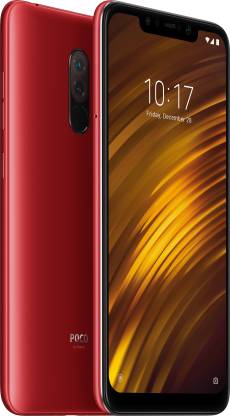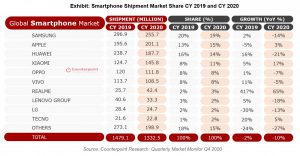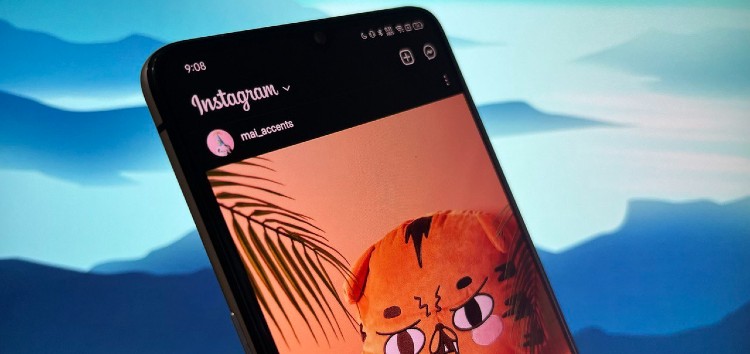[Poll] Poco UI: Should Xiaomi's Poco follow Huawei's Honor (Magic UI) & Oppo's Realme (Realme UI) ?
— PiunikaWeb (@PiunikaWeb) October 4, 2020
Read our story here: https://t.co/sgxN7A1ghD
New updates are being added to the bottom of the story…
Original story (from February 28, 2021) follows:
Realme came to be in May 2018. The first phone unveiled was the Realme 1. Not long after, August 2018 to be more specific, Xiaomi unveiled the Pocophone F1 aka Poco F1, the first of its kind.
From the onset, Realme seemed to have had a solid market entry plan for the long term, doing the much it could to disassociate itself from Oppo, the parent company.
On the other hand, Poco was somehow unsure with the direction to take, instead opting to continue operating under the wings of Xiaomi.

Of course, this partly changed in 2020 when Poco announced its intentions to work independently. But we all know this is only true on paper.
Similar to Realme’s early days in business where devices still used its mother company’s ColorOS skin, Poco took the same path by using Xiaomi’s MIUI skin for its first ever device.
But unlike Realme that quickly broke away from ColorOS and in came Realme UI, Poco is still reliant on MIUI until this very day despite having become an independent brand.
In fact, the company did confirm that it has no immediate plans to ditch MIUI in favor of Poco UI, but given the support some of you guys are ready to offer, it perhaps is the better idea.
A good case in point is Realme. Ever since the Oppo sub-brand broke away from ColorOS, there have been some good stuff going on in the Realme UI camp that you won’t see in the Oppo community.
The company has unveiled a series of initiatives aimed at improving the software experience on Realme devices as well as tighten the relationship with fans, you know, just like OnePlus did back in the day.
For instance, they conduct sessions where users ask questions directly to concerned department’s developers (camera, RAM management, etc.), regular online fan meets and a dedicated Realme UI section to address queries related to the skin.
There are also other activities such as rewarding most active Alpha software testers with goodies and doing plenty of giveaways just so as to stay close to its fanbase and attract more.

And while there’s no denying that Realme UI is mostly the same ColorOS found on Oppo devices, the former is always listening to customers and often bends the rules to accommodate popular feature requests.
Last but not least, the AskMadhav YouTube series gives users a chance to send their feature requests directly to the boss himself, which further puts more trust in the brand.
The icing on the cake is that Realme devices are constantly on the receiving end of regular security patches, be it the premium or budget models.
Even better is that OS updates are improving with each iteration thanks to programs like Realme Early Access and Open Beta meant to hasten the testing and rollout of software updates.
All these efforts have not gone unnoticed. Indeed, Realme is doing well in terms of numbers compared to other vendors. The company emerged as the fastest growing brand in 2020 with 65% YoY growth.

And given the many software issues MIUI is always facing — most of which have in the past led to rollback episodes due to bugs — Poco can justify its independence from Xiaomi by borrowing a leaf from Realme’s software efforts.
Bringing back the discontinued Global MIUI Beta program would be a good place to start. Follow these with regular online meetups with fans and constant communication between the fanbase and the Poco team should also do the company major favors.
On top of that, outlining a clear software update policy should also be massive for the company, after all, we all know there is nothing to worry about in terms of hardware.
Of course, eventually shifting to Poco UI or something would even be much welcome since the company would be able to focus on a small group of users with the intent of expanding to more regions.
No doubt that Poco has been getting up to speed with some Realme-like initiatives, but there is still some way to go. For instance, there is the Fan Connect series that hasn’t quite taken off as expected.

Like Realme’s AskMadhav YouTube series, Poco also has one of its own dubbed Poco AMA although the series, which entered season 2 this year, recently lost one of its hosts.
The company has also discussed part of its software update plans, but still no clear update policy in place. There is also a dedicated Poco community forum unveiled not long ago though it still is unstable, but there are plans to make it better in future.
Couple all these efforts and more with the excellent hardware found on Poco devices and you have another serious contender in the budget smartphone market to take on Realme.
With the financial backing that Poco presumably enjoys from Xiaomi, it shouldn’t be a problem implementing some of these initiatives in the shortest period of time, but then again, I don’t call the shots over there.
Poco still has a lot of learning and unlearning to do as an independent brand — and hopefully it reads some of the books that Realme has been reading from, especially on the software front.
What are your thoughts? Let us know in your comments below. Also, be sure to cast your vote on the Twitter poll below. The article will be updated after a week with the poll results.
Poll Time!
— PiunikaWeb (@PiunikaWeb) February 28, 2021
Do you think Poco stands a better chance if it follows some of the methods used by Realme, especially in matters of software updates?
Vote below & read our opinion here: https://t.co/pXB2jf0Heo#Poco #Realme #Xiaomi #RealmeUI #MIUI #PocoUI #updates #poll
Update 1 (March 07)
Going by the results, about 65.6% of those who voted believes that yes, Realme can be a good inspiration for Poco, while 12.5% disagree. 15.6% consider that Poco should at least try and learn from Realme, and the rest of the 6.3% aren’t sure about this.
PiunikaWeb started as purely an investigative tech journalism website with main focus on ‘breaking’ or ‘exclusive’ news. In no time, our stories got picked up by the likes of Forbes, Foxnews, Gizmodo, TechCrunch, Engadget, The Verge, Macrumors, and many others. Want to know more about us? Head here.

![[Poll results out] Realme might just be the inspiration Poco needs to succeed on software front [Poll results out] Realme might just be the inspiration Poco needs to succeed on software front](https://piunikaweb.com/wp-content/uploads/2021/01/poco-logo-1.png)

